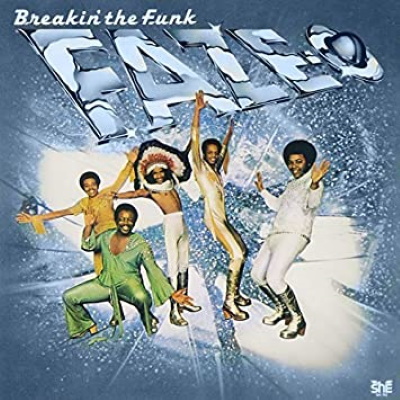
(April 13, 2021) We are sad today to say goodbye to Robert “Bip” Neal, Jr., the percussionist and lead singer of the 70s funk group, Faze-O. Yet another of the incredible trove of great funk groups coming from the state of Ohio, Faze-O was best known for the hit 1977 song and album, “Riding High,” produced by Satch from the Ohio Players. They have been lauded and sampled by artists ever since.
The Dayton-based group featured Neal on percussion and lead vocals, Roger Parker on drums, Ralph Aikins on guitar, Keith Harrison on keyboards and Tyrone Crum on bass. In the mid 70s they were signed She Records, and issued three albums in three years, Riding High, Good Thang, and Breakin’ The Funk. Their initial single, "Riding High," became a funk classic, hitting the top 10 winning for them fans around the world.
(April 13, 2021) We are sad today to say goodbye to Robert “Bip” Neal, Jr., the percussionist and lead singer of the 70s funk group, Faze-O. Yet another of the incredible trove of great funk groups coming from the state of Ohio, Faze-O was best known for the hit 1977 song and album, “Riding High,” produced by Satch from the Ohio Players. They have been lauded and sampled by artists ever since.
The Dayton-based group featured Neal on percussion and lead vocals, Roger Parker on drums, Ralph Aikins on guitar, Keith Harrison on keyboards and Tyrone Crum on bass. In the mid 70s they were signed She Records, and issued three albums in three years, Riding High, Good Thang, and Breakin’ The Funk. Their initial single, "Riding High," became a funk classic, hitting the top 10 winning for them fans around the world.
Faze-O's music showed great sophistication, attracting both straight funk fans and also fans from the jazz fusion world. And in subsequent years, hip-hop artists certainly cherished the work Faze-O, making samples that played a key role in future rap hits.
Neal was a key component in the group’s success, composing many of the acts most popular songs, and also serving as lead singer for most.
Neal’s death reminds us again of the almost embarrassing wealth of talent that R&B fans took for granted in the 70s and 80s, and how the work from that period has held up, more than four decades later.
By Chris Rizik
